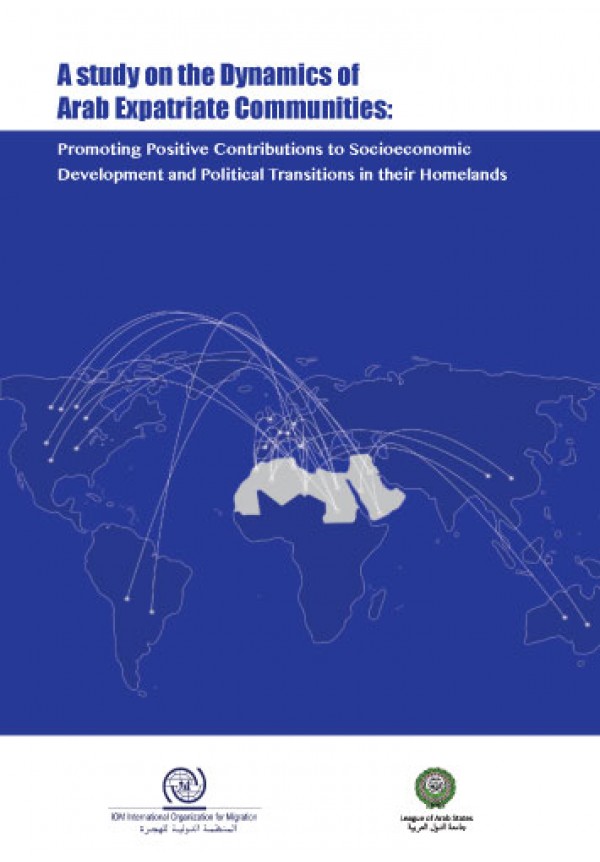
A Study on the Dynamics of Arab Expatriate Communities: Promoting Positive Contributions to Socioeconomic Development and Political Transitions in their Homelands
This collection of research papers focuses on specific aspects of the complex relationships that exist between expatriate communities and their home countries in the Middle East and North Africa, highlighting in particular the various kinds of social, political, and economic engagement that define these relationships. The collection was a collaborative endeavor between IOM and the League of Arab States.
In the Middle East and North Africa, national stocks of expatriates can be as high as 15% of the native population (excluding the West Bank and Gaza). The remittances that these expatriates send home can count for as much as 22% of GDP and an even greater proportion of foreign currency earnings in their countries of origin. Expatriates have contributed their knowledge and expertise to the development of human capital and the use of new technologies in the region. Migration has also served as a mechanism for the transfer of ideas, knowledge and culture. The kinds of relationships that these expatriates have with their home countries and the pace of development in the region have therefore become increasingly interlinked in recent decades. Finally, this research comes at a time when the Arab uprisings in 2011 have created new opportunities for recasting and reinforcing these relationships. Arab expatriates may therefore not only become increasingly engaged in the development of their countries of origin but may also contribute to the political transitions that are underway as well.
As well as the contribution that this collection makes to academia, the analyses and recommendations put forward serve as a foundation for future work which aims to realize the developmental potential of expatriate communities. Such communities, mobilized by the unique bonds they have with their home countries and their desire to see those countries enjoy socio-economic growth, may be one of the most important driving forces in development in the 21st century.
Read More
- Foreword
- Executive Summary
- Chapter One: Egyptian Migrants in Germany and the Assistance of Development Efforts in Egypt by Moursi, Mostafa Abdel -Aziz
- Chapter Two: The Participation of Migrant Women in the Socio-economic Development Scene in Two Maghreb Countries: Social Reading of Status and Roles by Et-Tayeb, Aicha
- Chapter Three: Egyptian Migrants in the United Kingdom: A Reading After the 25th of January Revolution by Fawzy, Sameh
- Chapter Four: Democratization After Iraq: Expatriate Perspectives on British Policy Collaboration by Holman, Zoe
- Chapter Five: How do Political Changes in the Country of Origin Affect Transnational Behaviours of Migrants? The Case of Egyptians in Turin During and After the Arab Spring by Premazzi, Viviana; Castagnone, Eleonora; and Cingolani, Pietro
- Chapter Six: The Tunisian State and the Tunisian Abroad by Jaulin, Thibaut
- Chapter Seven: The Pension of the Returning Retired Migrant in the Maghreb: A Development Factor? by Bouhdiba, Sofiane
- Conclusion